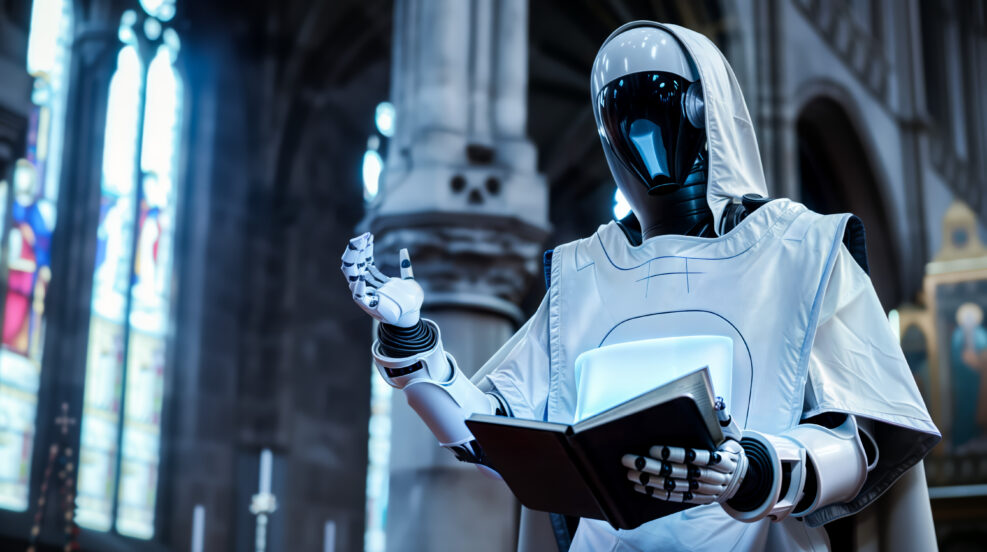
Archives


Hurry Up, Let Me Evolve Already
A review of Kingdom of the Planet of the Apes
Bizarre New iPad Pro Ad Says the Quiet Part Out Loud
Witnessing the rise of anti-human corporate tech
The Uniqueness of the Human Writer
LLMs are shortcuts, but sometimes the shortcut makes you miss the point of the journey
Beyond Social Media’s Impact on Mental Health
Social media addiction can harm more than our moods
Robert J. Marks Discusses Artificial Intelligence in D.C.
Marks is making the rounds talking about AI and his new book.
AGI as Magic: Not Real, But Still Deadly
AI's magical hype will continue to hypnotize, but its fundamental limits are stark, and need to be acknowledged.
Father Justin, a Chatbot, is Absolving Sinners
Critics are calling for the AI priest to be "taken down immediately."
Joe Rogan Spins Bizarre Take on Evolution and AI
The podcaster thinks AI could become "God"
Helpful Video Maps Out Gen Z Mental Health Crisis
The glow of the screen is swallowing a generation, and it needs to stop
Remote Work: Liberation or a Major Step Back?
Feeling disconnected or undervalued can lead to quiet quitting, data shows
Doc Ock and His Sentient AI Arms
Could AI ever control the human mind?
The Crisis of Identity That Tech Doesn’t Help
Consumerism works well but leaves us empty
Green Goblin, the Hasty Transhumanist
A classic Marvel villain presents a picture of hurried science gone wrong
David Foster Wallace: If Screens Are Your Main Media Diet, You’re Going to Die
The novelist warned about the pitfalls of the online life
I Don’t Need an AI Refrigerator, but Thanks
We need to clarify what AI is good for and what it would only complicate
Why Dune Might Be the Saddest Film I’ve Ever Seen
Are we saved through the love of power or the power of love?
Who Needs Teaching Assistants? Bring In the Bots, Please
In defense of a human-led humanities
The Lord of the Flies and the Problem AI Can’t Solve
The problem of evil is spiritual and can't be solved by more technology